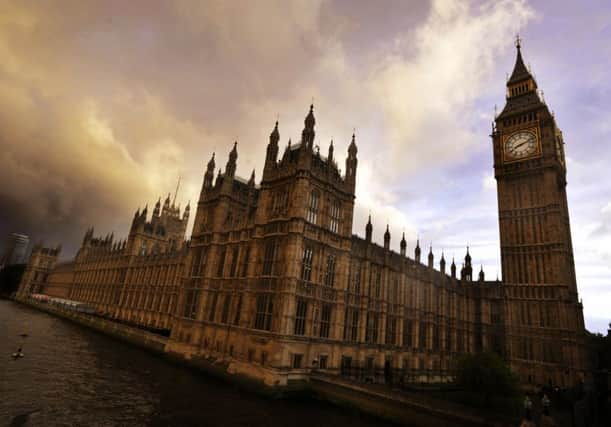Leaders: MPs’ pay rise was never part of the plan


The body was set up after the 2009 MPs expenses scandal and was tasked with making the remuneration of MP’s more transparent. There was a time when hard-done-to MPs, unable to persuade the public that a pay rise was necessary or unwilling to face down the public for giving themselves one, simply and quietly increased their expenses and other perks in what they saw as a substitute.
This is what led to the outrage when it was revealed MPs were using the public purse to pay for their homes and for ridiculous items such as wisteria for their gardens and a duck house. That scandal did serious damage to the reputation of the House of Commons and to democracy in Britain in general.
Advertisement
Hide AdAdvertisement
Hide AdIt has to be remembered that IPSA was a body tasked with, at least partially, restoring the public’s faith in the financial probity of their elected representatives.
So the new structure outlined by the IPSA will not cost the taxpayers any more than they currently pay and brings in cuts to expenses, pension and severance payments for MPs. It will also restrict future pay rises to be in line with average rises in the public sector – likely to be less than the original proposal of being tied to average earnings across the board.
So far so good. But it also brings MPs a 10 per cent pay rise, seeing salaries rise from £67,060 to £74,000. This is where it got it wrong. And there are many who see that the pay rise is wrong.
Coming at a time of arguments raging about the prolonged period of austerity Britain is currently undergoing, when there are restrictions in public pay and the continued paying down of the deficit, many MPs have said they do not want the pay rise and that it is inappropriate given the country’s circumstances.
Even the government formally expressed its opposition to an increase in a letter to IPSA. But it appears it is unstoppable – and that is the part the public will find truly unbelievable. MPs’ pay is out their hands – everyone thought that would be a good thing and no-one saw the independence of the pay-setters working this way.
But IPSA is wrong in saying MP’s are underpaid. And in the logic of their actions IPSA has actually forgotten what it was set up to do. Creating transparency was not the end, but the means to restore the public’s faith in politicians. By doing as they have, they have failed in their prime directive.
But the public, the long-suffering public, will know that if the MPs united unanimously in opposition to this measure it actually could be stopped. The fact is there really does not seem to be that will. Confidence is not restored.
Customer should come first
Markets have throughout history been important social places for people. They give us the supplies we need every day, the food and the drinks that sustain life. Today’s supermarkets offer much more, a massive array of consumer goods that we need for 21st century life, as well as the luxuries and treats we like. They are also the place where we bump in to friends. All in all we like markets, and we need them to be good places to be. The competition between them gives us plenty of choice where we spend our cash.
Advertisement
Hide AdAdvertisement
Hide AdSo places that confuse or mislead us are probably not where we want to be. Yesterday the Competitions and Markets Authority (CMA) warned that supermarket pricing could “confuse or mislead” shoppers and has told the industry that it needs to make the cost of food clearer and more transparent for consumers.
Congratulations to Which? for its tenacious pursual of the issues around this and the creation of its super-complaint, seven years shows great commitment to the consumers’ best interests.
Now we do need to see that action by government to strengthen rules to give retailers less opportunity to continue in these ways.
And we need the retailers to take heed of the CMA’s findings on the report and not only improve practices but to give clear and consistent messaging that they are improving practices. Given our relationship with them it would be in their best interests.
Perhaps the first one to do so would reap the biggest benefits in terms of attracting customers.